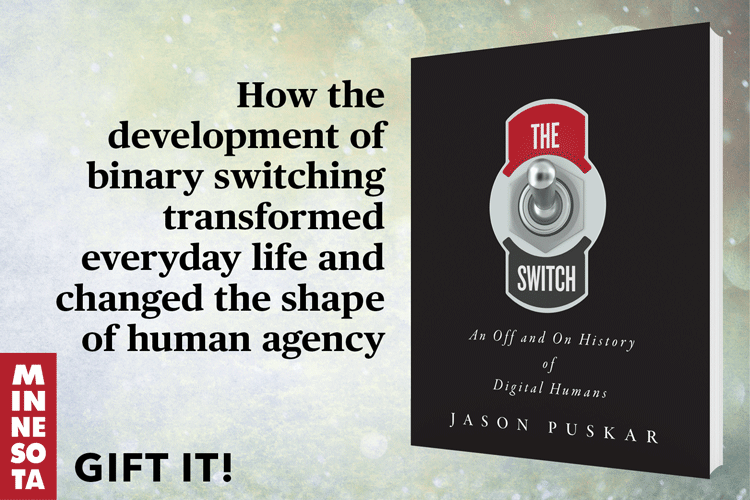Phantoms of Patriarchy: On Ditlevsen & Bachmann – Public Books
[ad_1]
Overlooked, forgotten, rediscovered, and remembered. These words have often been used to describe two authors—the Austrian poet and philosopher Ingeborg Bachmann (1926–73) and the Danish writer and columnist Tove Ditlevsen (1917–76)—whose life and works have recently become the subject of something that might be called revival fetishism. Revival fetishism refers to the clamoring of writers, academics, translators, publishers, editors, agents, reviewers, and others to bring works by historically marginalized authors to a broader English-language and international readership, typically in ways that can’t help but be linked with the forwarding of their own careers. Non-English-speaking women writers are a common target, but revival fetishism also looks to other identifiers—race, ethnicity, sexuality, geography—in its efforts to find the next hidden classic.
Revival fetishism isn’t all good or all bad. But it does seem to be where feminist politics meets the capitalist underbelly of the international, and particularly the English-language, publishing industry. Revival fetishism informs which authors end up getting published or republished, who gets to translate them, who writes the forewords and afterwords and reviews, who controls the narrative, and on what grounds. Revival fetishism does mean we are reading more widely; it has widened and loosened the canon and the ways we think about what constitutes a classic. But when the mastodons of the international culture industry (from big publishing houses to prestigious news and media outlets) get involved, this reviving work risks stifling the voices they intend to amplify. In the case of Bachmann and Ditlevsen, revival fetishism perpetuates the gendered dynamics of authorship and reception that they spent their lives writing about and against.
Bachmann and Ditlevsen’s most iconic books—Malina (1972), Dependency (1971) and The Faces (1968)—follow (woman) writers as they attempt to assert themselves in a patriarchal society and to find a place in their respective national literary traditions. The protagonists (and authors) of these books are desperate to be recognized as serious writers but find themselves repeatedly struggling to speak and to write, to be read and be heard. Constantly, they are misheard and misread if they speak or write at all.
Usually, men are to blame.
In Bachmann’s Malina, the nameless narrator hides her writing from the eponymous lover because she fears his criticism and discouragement (“Since Malina is sleeping, I begin to write”), or expects he will take her attention away from writing by demanding she perform domestic tasks (“Why are you just sitting there instead of finally making us some coffee?”) or freshen up her makeup. In Dependency, when a loosely autobiographical Tove shares her writing with her husband, Ebbe, he (embarrassed by his unflattering resemblance to one of the characters) cruelly criticizes her: “Why can’t you make your characters like Dickens did … You take yours from real life. That’s not art”). In The Faces, a novel, a psychiatrist weighs in positively on the protagonist’s literary output during a session: “In my opinion, you’ve written some quite brilliant poems,” and then changes tack (“[Your poetry is] hopelessly banal … full of confessions of what you feel that you feel when you feel”). In all of these cases, a (typically male) authority figure bears judgment on these characters’ work, and the writer-protagonist is cowed, falls silent. If they continue writing, it is only in spite of these critical, overbearing voices.
These husbands and lovers and doctors, I’d argue, are stand-ins for the literary critic. Bachmann and Ditlevsen, in other words, are making a point not only about heterosexual relationships and psychiatry but also about the patriarchal bent of literary criticism and its confining hold on the woman who tries to write. How, the protagonists (and authors) of these books wonder, to write (authentically) in the face of gendered judgment? Is there a way to write that can circumvent the oppressive, masculinized gaze of the reviewer? As Bachmann puts it elsewhere: “Should I / take a thought captive, march it / to an illuminated sentence cell? / […] research the libido of a vowel / calculate the value of our consonants?” These writers and their writing characters grapple too with how to arrange their words and punctuation, which words to use, whether to write at all—highlighting the nerve-racking reality that the woman writing must not only consider how she writes but also how she will be read.
it is vital to notice the ways in which the project of revival—bound as it is to the international publishing industry—comes with new demands (for marketability, clarity, timeliness) that reawaken old biases.
The anxiety of authorship isn’t unique to the woman writing, but, as Sandra Gilbert and Susan Gubar described decades ago, there are additional layers to navigate as women seek to establish themselves as writers. This was true when Bachmann and Ditlevsen were living and writing (both died in the 1970s, Ditlevsen of suicide, Bachmann possibly as well), but also remains the case today. In Denmark, Ditlevsen’s home and now my own, a place that markets itself as a beacon of gender equality, a recent study showed that books written by male authors were more likely to be reviewed than books by female authors; that male critics far outnumber their female counterparts; that men review books by other men more positively than books by women and that women review books by women even more negatively than men.
The numbers are shocking, if not surprising, but there is also something about the tone and habits of how women writers have and continue to be written about that both Ditlevsen and Bachmann are well attuned to. A Danish critic’s scoffing commentary from a few years ago about Ditlevsen’s popularity among younger Danes is exemplary: “A scary number of years ago, I read Tove Ditlevsen’s The Faces and I thought that it was excellent. I also read some of her poems, and found some of them to be sentimental, banal, and very mediocre. All of this is still true.” Every time I read these lines, I am struck by how uncannily they mimic the psychiatrist’s uninvited opining in The Faces. I hear the psychiatrist too in the way Ditlevsen’s contemporary and close friend, another Danish writer, admonishes her work: “She wrote poems in rhyme, which were well-crafted and well-formulated, but she wrote them with a certain corset on which she had squeezed herself into … as one did in … that long tradition of love/nature poetry, where sorrow rhymes with morrow and so on. A little old fashioned!” Like the psychiatrist, these voices of the literary establishment—past and present—don’t analyze particular lines of poetry or engage in any substantial way with the text; rather they rely on their subjective impressions, taking these alone as the grounds of judgment, evidence of universal literary truths—turning a vast, diverse body of work, and the complicated person that produced them, into a quip and a caricature.
When Malina, Dependency, and The Faces were, in 2019, acquired by Penguin Modern Classics in the UK (and shortly after by New Directions and Farrar, Straus and Giroux in the US), I was excited, to say the least. I was thrilled at the thought of new editions, of Ditlevsen and Bachmann reaching a larger audience and finally receiving the recognition as serious authors they so deeply longed for during their lives.
But as these stylized editions have been released, and the reviews have followed in all the serious places, I’ve started having second thoughts. Because in the grandiose headings—“Overlooked No More: Tove Ditlevsen, Danish writer of Confessional Autofiction”; “Ingeborg Bachmann’s Malina Is the Truest Portrait of Female Consciousness Since Sappho”—I can’t help but hear an echo of the psychiatrist, the husband and the lovers, the male reviewers and their fictionalized counterparts. I can’t help but see an eerie phantom of a past patriarchy leeching into the present in the net of literary authority these features cast over Ditlevsen and Bachmann; in the sly conversion of opinion to literary truth. Patriarchy haunts the voice of judgment, guides the hand that (finally!) gives the stamp.
In each of these titles, I hear the work of persuasion. In the behind-the-scenes commissioning of these reviews, I see deals brokered. In the sleek and cartoonish covers alike, I know an appeal is being made. But to whom? Who needs to be persuaded, entreated, appealed to? And on whose terms is this persuading, entreating, appealing taking place?
By whom has Ditlevsen—far and away the best-known author of the 20th century in her home country, a genuine household name—been overlooked? Who needs to be convinced that Bachmann aptly portrayed the existential plight of living in a gendered body? Surely not the thousands of German-language readers who made her a best-selling author in the 1970s, or the feminist scholars who have been dealing with her work for decades. Why do we need to use androgenizing terms like autofiction to describe what is, in fact, an aesthetically and historically specific, gender-coded mode of relating to literature and the literary canon? Why does Ditlevsen getting picked up by a Penguin Random House imprint make national headlines? I wonder, is this—the shiny new editions and grand epitaphs in prestigious places—really the reception that Ditlevsen, Bachmann, and their characters so deeply longed for? Is this what The Faces’s Lise imagines, when she endeavors to “write books again … under a completely different name”? Or what Bachmann’s nameless narrator thinks the “beautiful book” she’s covertly been working on might achieve? Is this what it means to be recognized as a serious author?
I’m not so sure. Because, for Ditlevsen as for Bachmann, the dream of becoming a writer was never about being seen or evaluated as men but rather about having the freedom to write without having gendered categories placed upon them. Of course, it is wonderful that Ditlevsen and Bachmann are being read by more people. But it seems vital to notice the ways in which the project of revival—bound as it is to the international publishing industry—comes with new demands (for marketability, clarity, timeliness) that reawaken old biases. The revival quest—to get these writers out there, to get them the attention they deserve—begs the same kind of sweeping readings and dramatic headlines that Bachmann and Ditlevsen parody again and again. And even if these readings and headlines are positive and have been written or facilitated by women, they too contribute to crystallizations of a narrative, a congealed image of writers who spent their lives trying to write themselves out of the boxes—or in Bachmann’s case, from behind the wall—they were put into by others (and literary critics in particular). “Today’s young poets,” Ditlevsen wrote later in her career, “probably see me as somewhat of a ding-dong affair. But that doesn’t bother me at all—I could never imagine writing like a modernist.” She didn’t need the (gendered) stamp; only the space to write and be read.
Revival fetishism, in other words, isn’t so much a matter of identity, as least in a superficial sense, as it is of the continuing production of literary history and of literary history’s entanglement with a patriarchal (and capitalist) culture industry. Because these endeavors to give Bachmann and Ditlevsen serious treatment, bound as they tend to be to old metrics and practices of prestige, to genres and descriptors borne out of a male-dominated tradition of literature and criticism, might be granting them membership to a club they never actually wanted to be part of. Why not, I wonder, read these authors on their own terms, without the boxes, rather than aiming to please the very same bastions of literary authority that “overlooked” and “forgot” them in the first place. ![]()
This article was commissioned by Bonnie Chau.
Featured image: Pierre Parrocel, Two heads of women, courtesy The Metropolitan Museum of Art & the Bequest of Phyllis Massar, 2011.
[ad_2]



